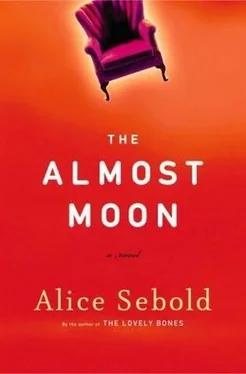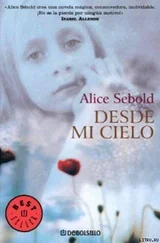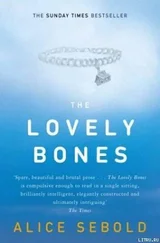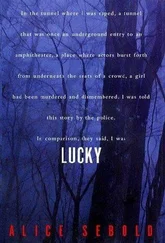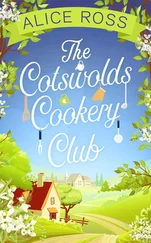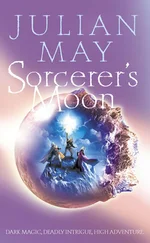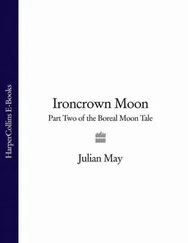Over my dresser I had hung an early drawing Jake had done of me. He’d based it on a photograph Edward Weston took of Charis Wilson before she became his wife. I sat the wrong way on one of our metal-and-vinyl kitchen chairs from the house we shared in Wisconsin. I wore my childhood Brownie beanie, which Jake drew to resemble Wilson ’s sporty beret, and a bra and short slip. When I spread my legs, I made the slip come up to the tops of my thighs. Though you could see nothing through the slip, which drifted down to act as a veil, the invitation was there. With that drawing, I went from being a bright student in the classrooms of my professors to being a pinup in the faculty gallery attached to the university library.
I crawled into my bed and pulled the blankets over me. I remained fully dressed in my soiled clothes. I thought of the nightly rituals of beauty that I had learned growing up. How adult I felt the first time my mother applied moisturizer to my feet. After this came socks and then old-fashioned lace-up ankle weights. “Otherwise,” my mother said, “you’d rip the socks off in the middle of the night and ruin the effect.” As I drifted off to sleep, I remembered one of so many countless phone calls from Mrs. Castle over the last few years. She had arrived to find my mother wearing dainty Danish-green cotton gloves, over which she’d fastened a pair of aluminum handcuffs. She had informed Mrs. Castle that she had misplaced the key. Did I happen to remember where it was?
I was eight when my father had an accident in his workshop and was rushed by ambulance to the hospital. He did not come home for three months, and I was not allowed to see him. My mother said he would be gone for exactly ninety days and was visiting friends and family in Ohio. When I asked who, or why we couldn’t join him, she hushed. Mr. Forrest’s visits grew more frequent, and the Donnellsons and Levertons brought us meat loafs and casseroles, which I often found on the stoop after school.
I would let myself in and sit at the dining room table, reading. I allowed myself just enough light via the dimmer switch on the chandelier so that when darkness fell, the house did not go black. My mother came down from her bedroom in the early evening, and we made dinner together. I had decided, after my father had been gone a week, to hoard the casseroles. Instead we made peanut butter on Ritz crackers, or Swanson suppers, or my favorite: endless rounds of cinnamon toast. My mother would be wearing the gown she had slept in-white and diaphanous-and I would remain in my school clothes.
“Still eighty-two days,” she would say. Or “Only seventy-three.”
It became a shorthand with which we would greet each other. “Sixty-four.” “Fifty-seven.” “Twenty-five.”
Over those ninety days, it did not matter what time I reached home. I would stop in front of Mr. Forrest’s house on my way back from the bus stop and tap on the window to wake his sleeping dog. Tosh, a King Charles spaniel-“The only breed!” Mr. Forrest said-would come to where I stood and sadly paw the glass.
If I spotted a casserole on our doorstep, I would hurry it to the kitchen and wrap it in tinfoil to hide in the basement freezer. I was worried my father might never come home, and feeding us would become my responsibility.
When I had tried once to explain what was wrong with my mother, it felt hopeless.
“She doesn’t do much,” I’d said.
“It may seem like that to you, Helen,” Miss Taft had said. She was my second-grade teacher, and my class was her first.
“She doesn’t drive,” I tried.
“Not everyone does.”
“My father does. Mr. Forrest does.”
“That’s two,” she said, and held up two fingers. She smiled at me, as if supplying me with whole numbers would solve everything.
“She used to go for walks,” I said, “but she doesn’t do that anymore.”
“Raising a child takes all of one’s energy,” Miss Taft said.
I stared past her to the map of the world that hung over the blackboard. I knew when to shut up. My mother’s problem was my fault.
Ninety days after my father left, he returned. My mother had put on a suit I’d never seen before and meticulously combed and coiffed her hair. It was the first time I realized that beneath her diaphanous gowns, she had been losing weight. I remembered then that I had never seen her eat more than one or two of the Ritz crackers she heaped with Skippy. She had also never said a thing about the hoarded casseroles.
My father walked in the door and smiled sheepishly at me. His hat had a crisp new feather in it, though he too had grown thinner. I went to hug him-something we did not do-and he held out a large plastic bag, inadvertently blocking my way.
“I brought these for you,” he said.
He turned to envelop my mother. I saw her face as she came toward him. Her tears had already made inky troughs of mascara under her eyes.
“I’m so sorry, Clair,” he said. “I’m home to take care of you now. I’m strong again.”
Without even speaking, he lifted her up, cradling her easily and drawing her to him. In my head that day, I equated “I’m strong again” with only that-his physical ability to carry more weight. Inside the bag I held were plastic dishes in aqua-green. One was a pitcher and one was a tray and one was a kidney-bean shape, which I later learned had been his sick bowl.
In the weeks and months that followed, it became a riddle we played out.
“Why did you go away?”
“To get better.”
“Better from what?”
“Better than I was.”
“What was wrong with you?”
“I can’t remember because it’s gone!”
Quickly, I forgot too. I needed him. It was my mother who had the problems. My mother who was afraid. So afraid that nothing could make her unafraid. She felt safer in my father’s arms. She felt safer in the house on Mulberry Lane. Or under blankets. Or with her feet tucked up beneath her and a hot-water bottle nestled in her lap.
My father would greet me in the morning when I came down for breakfast.
“It’s a hard day, sweetheart,” he would say.
This was our shorthand, and it never changed. On hard days, my mother stayed in bed with the blinds drawn until my father and I left the house. She knew why we had to leave, but still she thought our abandonment of her cruel. My father and I kept our voices low in the kitchen and wolfed down our food. When there were no crisp bills from his wallet for me to take to buy my lunch, I totted up money from the change jar in the kitchen, being careful not to let the sorting of coins make any noise.
At age eleven I confided in Natalie about the way my mother behaved, and held my breath when she said her mother was the same way. I had never been so happy. But my excitement drained away when I queried her further. Natalie’s mother drank booze. That was enviable to me. The ease of being able to locate it in a bottle was like a dream.
It was on a hard day-
“Are you okay, Mom?”
“It’s a hard day, Helen.”
– that Billy Murdoch was hit by a car in front of the house.
I was in high school. My father had spent the night before away from home. “An overnight business trip to Scranton,” he’d said. Everyone else on our short block seemed to be gone that afternoon. But, most important, it was a hard day.
On the afternoon Billy Murdoch got hit, my mother paced herself as she always did on a hard day, filling the hours with house chores to try and keep busy, to try and keep from sitting on the couch or at the kitchen table and giving in to it. It was as if, if she cleaned and washed and organized, she could keep her terror just enough at bay for her to breathe.
She told me later, in one of her bottomless whispers, when she was speaking from a place she lived in for months afterward, that she remembered hearing the sound-the sound of Billy’s body being struck by the car. “Like a pumpkin being hit by a baseball bat,” she said.
Читать дальше
